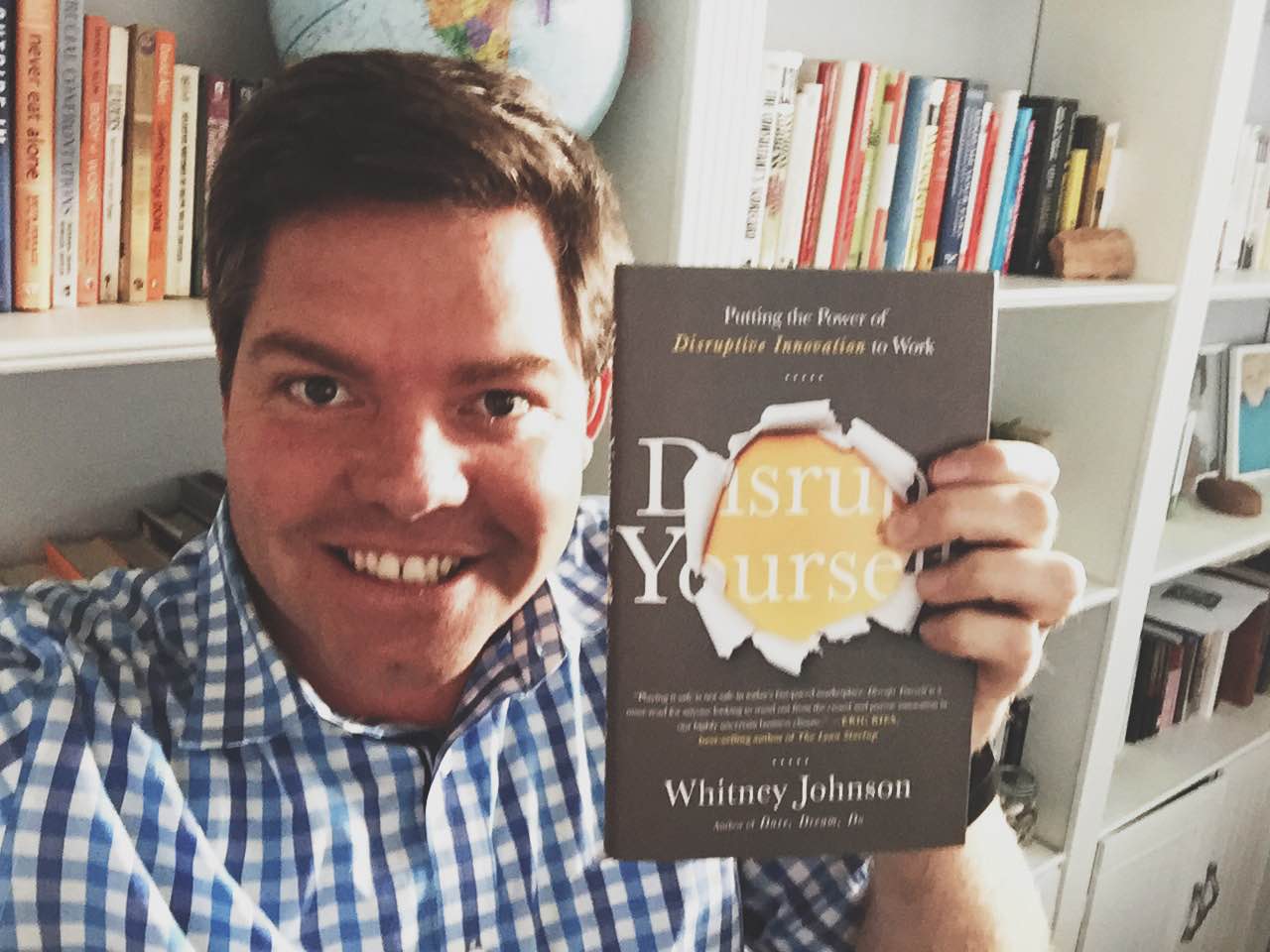Is it Time to Disrupt Yourself?

Get the book Disrupt Yourself by Whitney Johnson by clicking right here.
IS IT TIME TO DISRUPT YOURSELF?
Choose for yourself…
Here’s what the heavy-hitters are saying about Disrupt Yourself:
“Disrupt Yourself reads like a handbook for innovation: it shows the incredible value of recognizing what you are good at and finding unexpected ways to apply those strengths to the marketplace. The dramatic ‘jumps’ that Johnson encourages us to take truly form the basis of creativity and success.” – Steve Wozniak, co-founder, Apple, Inc. and Chief Scientist, Primary Data
“I have used the word ‘disruption’ to understand how some companies blossom while other wither. Whitney has applied the word in a different context – to understand why some individuals succeed in remarkable ways. Enjoyed this book!” – Clayton M. Christensen, Harvard Business School, NYT best-selling author of The Innovator’s Dilemma
“Playing it safe is not safe in today’s fast-paced marketplace. Disrupt Yourself is a must-read for anyone looking to stand out from the crowd and pursue innovation in our highly uncertain business climate.” –Eric Ries, bestselling author of The Lean Startup
“Wow! Disrupt Yourself wins the “plain English” award–which is to say I’ve seldom if ever read a better written business/career development book. The advice is compelling, clear-as-bell, research-based, and actionable. And it’ll work as well for a forty-something as a twenty-something.” –Tom Peters, bestselling author, In Search of Excellence
Q&A WITH AUTHOR WHITNEY JOHNSON
Disrupt Yourself is packed with powerful information that will revolutionize the way you live and work. I love it! Here’s a quick excerpt from this incredible book:
“As you embark on a journey of personal disruption, you are in search of a yet-to-be-defined market. But like an explorer, you have a plan: to discover and conquer new territory. It will sometimes feel scary and lonely, and you will undoubtedly end up in places you hadn’t anticipated. But your willingness to do things different than they’ve always been done will help you successfully discover your way up the S-curve of personal disruption.”
Richie: Why did you decide to write Disrupt Yourself?
Whitney: My “a-ha” moment around disruption came when I was reading The Innovator’s Dilemma by Clayton Christensen in 2005. As an equity analyst, I was already persuaded that the frameworks of disruption explained why mobile penetration in Mexico was quickly outpacing fixed-line penetration. But as I read the book closely, I wondered, do these frameworks also apply to individuals? And, if innovation is an inside game, can an organization truly drive corporate innovation without personal disruption? In 2006, I had the privilege of co-founding a boutique investment firm with Clayton Christensen, the father of disruptive innovation. As I immersed myself in applying these frameworks to investing, my ideas around personal disruption began to coalesce, beginning with one-off articles in the Harvard Business Review. In truth, though, this book would not be in your hands, if my publisher, Erika Heilman, and agent, Amy Gray, hadn’t said enough already: “Stop talking. Start writing.” Or in the words of my editor friend, Melissa Stanton, “Don’t just think it, ink it.”
Richie: How do you hope people apply the principles of the book?
Whitney: My hope that people will see this as a framework for managing change, whether at the organizational or individual level. But even more simply, my hope is that these ideas will help people to move from stuck to unstuck, or to move forward even faster.
Richie: What was your greatest take-away, personally, after researching and writing the book?
Whitney: There is a widely-held, albeit unconscious, belief in investing that if a stock is up one day, the next day, it will be down. Similarly, most of us believe that things can go our way only so long before the tide turns. What I learned in my research is that this is a fallacy. The better a stock does, the better it is likely to do. The more things go our way, the more likely they are to go our way. The more we disrupt, the better we get at riding the S-curve waves of disruption. This was a powerful learning for me.
—
Personally, this book for me is a game-changer and I know it will be for you too.








